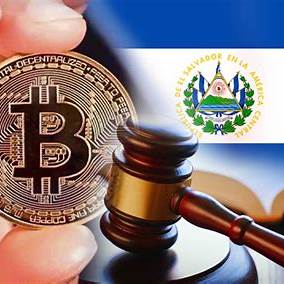El Salvador Redefine Política do Bitcoin para Garantir Empréstimo do FMI
Publicado: 1 de fevereiro de 2025 · Por: Nailliw Nakamoto
Ajustes Estratégicos no Bitcoin de El Salvador
Em junho de 2021, El Salvador ganhou destaque mundial ao se tornar o primeiro país a adotar o Bitcoin como moeda legal. Com isso, o país buscava promover inclusão financeira e estimular o crescimento econômico. Entretanto, o caminho se mostrou complexo, exigindo ajustes significativos na política de criptomoedas. Assim, em 2025, sob a liderança do presidente Nayib Bukele, El Salvador redefiniu sua política de Bitcoin para garantir um empréstimo de US$ 1,4 bilhão do Fundo Monetário Internacional (FMI).
Este artigo explora a evolução da estratégia do país, os impactos do acordo com o FMI e as consequências para o mercado global de criptomoedas.
Adoção Inicial do Bitcoin
O objetivo inicial da adoção do Bitcoin incluía:
- Inclusão financeira: fornecer acesso a serviços bancários para cidadãos sem conta.
- Crescimento econômico: atrair investimentos estrangeiros e posicionar o país como hub de inovação em criptomoedas.
- Remessas: reduzir taxas em transações de dinheiro enviadas do exterior, fundamentais para a economia local.
Para facilitar, o governo lançou a Chivo Wallet e instalou caixas eletrônicos de Bitcoin em todo o país. No entanto, problemas técnicos e baixa adesão da população geraram desafios, além de preocupações de instituições financeiras internacionais.
Desafios e Preocupações Internacionais
Embora a adoção do Bitcoin fosse ambiciosa, ela encontrou ceticismo:
- Baixa adoção: muitos salvadorenhos preferiam o dólar americano, convertendo rapidamente qualquer Bitcoin recebido.
- Volatilidade econômica: a instabilidade do Bitcoin levantou dúvidas sobre a estabilidade financeira do país.
- Relações internacionais: o FMI alertou sobre riscos à economia, recomendando ajustes na política de criptomoedas.
O Acordo com o FMI
Para superar esses desafios, El Salvador negociou um empréstimo de US$ 1,4 bilhão com o FMI. Como resultado, foram implementadas medidas como:
- Aceitação voluntária do Bitcoin: empresas não são mais obrigadas a aceitar criptomoedas.
- Limitação no setor público: o governo focará em operações financeiras tradicionais.
- Política de impostos: tributos passam a ser pagos apenas em dólares.
- Reformas fiscais: compromisso de reduzir o déficit em 3,5% do PIB em três anos.
- Medidas anticorrupção: novas leis para maior transparência e combate à corrupção.
Portanto, o país busca equilibrar inovação tecnológica e estabilidade econômica, além de fortalecer relações internacionais.
Impactos para o Mercado de Criptomoedas
As mudanças na política de El Salvador trazem implicações importantes:
- Precedente global: a experiência do país serve de estudo para outras nações interessadas em criptomoedas.
- Confiança de investidores: alinhar-se às recomendações do FMI pode aumentar investimentos estrangeiros.
- Regulação de criptomoedas: mostra o equilíbrio entre inovação financeira e supervisão regulatória.
Conclusão
O percurso de El Salvador com o Bitcoin evidencia tanto oportunidades quanto desafios ao integrar criptomoedas na economia nacional. Assim, a flexibilidade e a colaboração com instituições internacionais são essenciais para garantir crescimento sustentável. Além disso, essa experiência oferece lições valiosas sobre a relação entre moedas digitais e sistemas financeiros tradicionais.
Para mais análises e notícias sobre criptomoedas, visite nossa Página de Blog e explore nossos artigos sobre Bitcoin e outras criptomoedas.




